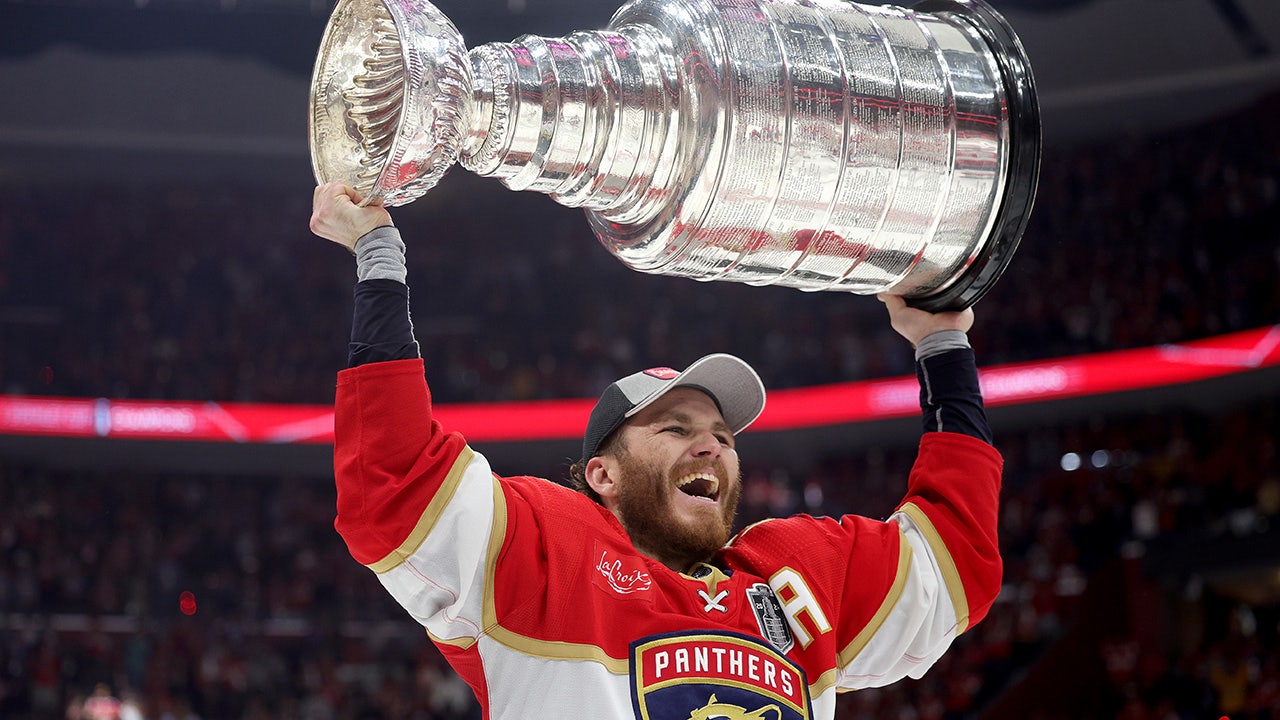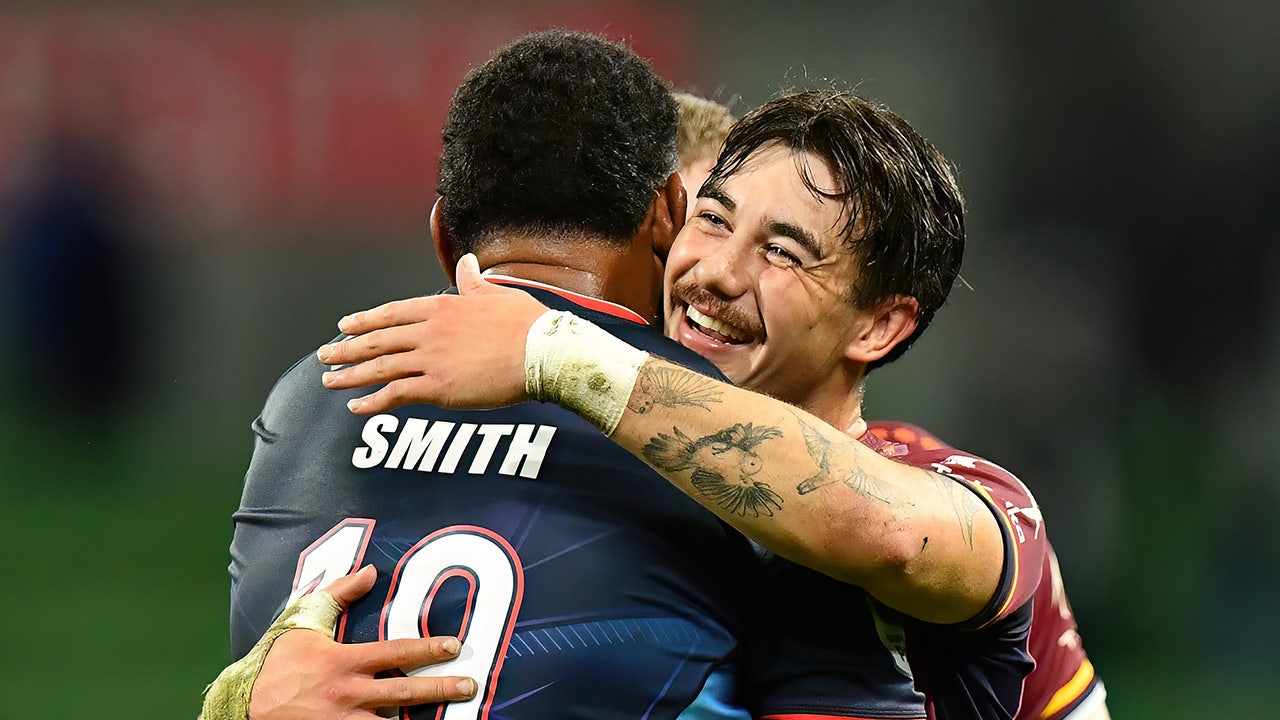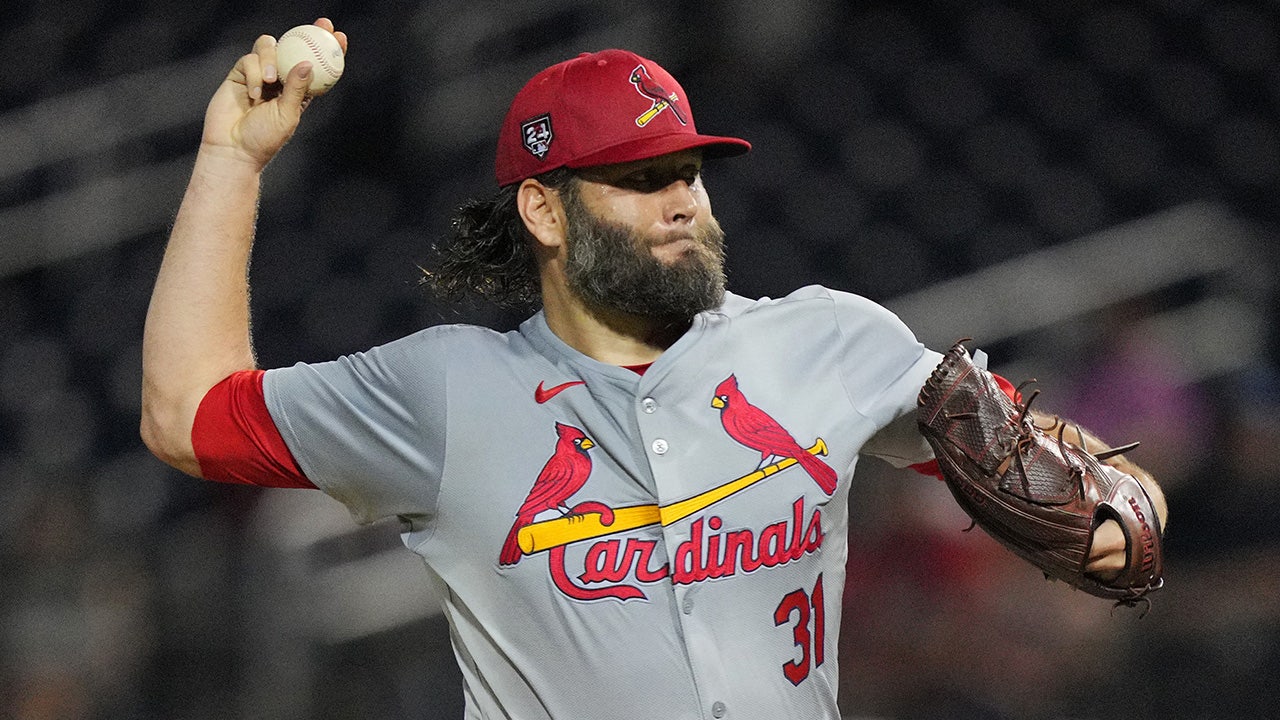Major-league front offices have completed the amateur draft and All-Star week and now can turn their full attention to the July 30 trade deadline.
Contending teams are trying to find ways to improve their rosters for the pennant race and the postseason through trades with “sellers” as well as other contenders. They’re also trying to add organizational depth to protect against unexpected injuries the rest of the way, knowing they can no longer make August waiver trades.
The phone calls, texts and even occasional emails are in full swing between front offices despite a difficult trade marketplace due to the cloudy, crowded playoff picture; exiting the All-Star break, only six teams — the White Sox, Marlins, Rockies, A’s, Angels and Blue Jays — sit more than 7 1/2 games out in the wild-card standings.
Life as a general manager at the trade deadline is a hectic, intense time, and every front office — regardless of market, track record or place in the standings — is under the microscope to some degree. But certain front offices, from clear sellers to aggressive buyers, face more pressure to deliver difference-making deals.
Here are the front offices and executives that are under the most pressure to make significant moves this trade season, as well as the teams that by contrast I believe don’t face as much pressure to swing deals.
Six front offices under the most pressure

Chris Getz has been in the GM chair for less than a year but this trade deadline could define his tenure. (Kamil Krzaczynski / USA Today)
1. White Sox, GM Chris Getz
The White Sox are set up to be the headliners of this year’s trade deadline. They are 27-71 and a whopping 32 1/2 games out of first in the AL Central. Getz has told the other GMs that there are no untouchables on his major-league roster; he is open to trading anyone if it expedites their rebuild, and that includes ace Garrett Crochet, mid-rotation starter Erick Fedde and Gold Glove center fielder Luis Robert Jr. Now, the White Sox don’t have to trade any of them, but if they do, the returns in those trades will significantly shape the legacy of Getz and perhaps even eventually determine the longevity of his tenure in this role.
2. Blue Jays, president Mark Shapiro, GM Ross Atkins
In my opinion, the Blue Jays need to extend the contracts of both first baseman Vladimir Guerrero Jr. and shortstop Bo Bichette between now and July 30, and if they can’t sign them to long-term deals, they should trade both and do a complete rebuild. I understand the Jays instead could trade one or both of them in the offseason or at next year’s trade deadline, but their trade value will never be higher than it is now as an acquiring team would get them for two pennant races, not one. (Both players will be eligible for free agency after next season.) Some will argue that Bichette’s down year would hurt his trade value too much, but according to several major-league executives, teams would value him the same as they always have despite his subpar season. And the interest would be there: For example, the Dodgers would move Mookie Betts to second base, once healthy, if they traded for Bichette; the Yankees would play him at third base if they pulled off a deal with their division rivals.
But even if the Blue Jays stick to their stance from June of not trading either superstar at the deadline, at a minimum they need to be shopping them. They are in last place, eight games under .500 (44-52) and have a weak farm system, so they need to make trades to improve their short- and long-term future. If the Blue Jays could make two blockbuster trades and land five to 10 solid prospects in return by dealing both, then it might make some sense. But if they maintain the position that Guerrero and Bichette won’t be dealt, then their focus at the deadline will be on trying to trade some of their top starting pitchers, including Chris Bassitt, Yusei Kikuchi and maybe even Kevin Gausman. The Blue Jays must make trades to get better and younger and they must improve their prospect cabinet at the same time.
3. Mariners, president of baseball operations Jerry Dipoto, GM Justin Hollander
The Mariners have arguably the best starting rotation, one through five, in the American League, which gives them a legitimate shot to run the table in the playoffs if they can win the AL West or secure a wild-card spot. However, the big question is whether this team can score enough runs to not only make the postseason, but also compete with the offensive juggernauts — such as the Orioles, Yankees, Guardians and Astros — in the potential AL playoff field if they get there. Executives around the league still can’t understand why the Mariners let Teoscar Hernández sign with the Dodgers last offseason, and it must have been hard for them to watch him win the Home Run Derby this week. (Hernández, who did not receive a $20.325 million qualifying offer from Seattle after last season, signed a one-year, $23.5 million contract with Los Angeles.) The front office’s job at this trade deadline is to add offense, and whether that’s Luis Robert Jr. from the White Sox or Jazz Chisholm Jr. from the Marlins or hitters such as the A’s Brent Rooker or the Nationals’ Lane Thomas, Seattle is under serious pressure to add bats.
4. Yankees, GM Brian Cashman
The Yankees front office and Cashman will make this list every year because that’s the deal when you run this storied franchise in New York City, where the fan base always views it as World Series or bust. The Yankees need a starting pitcher, and whether it’s an ace such as Garrett Crochet or a mid-rotation starter like Chris Bassitt (who has a limited no-trade clause), the need is real. They also should improve their offense at second, third or the DH spot, and they have a deep enough farm system to fill both needs (a starter and an offensive upgrade). What will Cashman do? The Yankees’ longtime GM has had some trade deadlines where he’s made big moves and others where he’s largely stood pat, and this year could go either way.
5. Dodgers, president of baseball operations Andrew Friedman
The Dodgers have had more injuries to starting pitchers than any team in MLB, with Tyler Glasnow, Yoshinobu Yamamoto, Walker Buehler, Clayton Kershaw, Tony Gonsolin, Dustin May and Emmet Sheehan all on the injured list. Glasnow should be back soon but Yamamoto can’t return until Aug. 16 at the earliest; they are the two most important starters the Dodgers need to be healthy. The Dodgers don’t know how effective Buehler and Kershaw will be when they are activated, and Gonsolin, May and Sheehan are out for the season. With all that uncertainty, the Dodgers have to make a move for a starting pitcher and they match up well with teams like the White Sox, Blue Jays, Tigers and Angels, all of whom could be trading starters. They have been searching for another outfield bat as well. In the offseason they committed more than $1 billion for two players, Shohei Ohtani and Yamamoto. When you invest that type of money, you can’t stop there in this scenario, when the goal is to win the World Series. The Dodgers must trade some top prospects to improve their pitching staff for both the regular season and postseason.
6. Marlins, president of baseball operations Peter Bendix
The Marlins will be selling at the deadline and they’ve made it clear to the industry that they are going to trade infielder/outfielder Jazz Chisholm Jr., closer Tanner Scott and first baseman Josh Bell. Chisholm probably won’t get traded to the Yankees or Phillies because many evaluators question how he would perform in those markets and fit in their clubhouses. Instead, most execs think he’ll end up being moved to the Pirates, Mariners or Giants. The Marlins have another good trade chip in Scott, one of the best-available closers, and teams like the Orioles, Astros, Rangers and Dodgers would love to land the All-Star lefty. Bendix, who was hired away from the Rays last offseason, is on the clock and under huge pressure to get strong returns, especially in the trades of Chisholm and Scott.

GO DEEPER
MLB execs predict Crochet, Chisholm and 16 other players most likely to be traded at deadline
Five front offices under the least pressure

Dave Dombrowski and Sam Fuld will look to make the right additions to a strong roster with an eye toward October. (Nathan Ray Seebeck / USA Today)
1. Phillies, president of baseball operations Dave Dombrowski, GM Sam Fuld
The Phillies have the best team based on win-loss record (62-34), scout evaluations and many of the game’s key metrics. That doesn’t mean they don’t have needs, especially in the outfield, where they could use a long-term solution for center field and a right-handed platoon outfielder for left field. A trade for the White Sox’s Luis Robert Jr., or the Diamondbacks’ Jake McCarthy, or maybe even the Marlins’ Jazz Chisholm (if the Phillies front office thinks the fit with their clubhouse would work) could make sense if they address center field. For left field, they can upgrade their right-handed-hitting options to pair with Brandon Marsh, and the trade candidates include Lane Thomas of the Nationals, Tommy Pham of the White Sox and maybe Mark Canha of the Tigers, among others. As one of the favorites to win the World Series, there’s always pressure to pull the right levers at the trade deadline. But this team is pretty strong as is.
2. Orioles, GM Mike Elias
The Orioles sit atop the AL East and are in for a great race with the Yankees and Red Sox for the division title. They arguably have the best team in the division but also are not strong enough, at present, to put away either New York or Boston. They could use another starting pitcher, having lost Kyle Bradish, John Means and Tyler Wells to season-ending injuries, and more bullpen depth. But no one has a better or deeper farm system than the Orioles, which puts them in a strong position to address both areas. At the same time, they don’t want to trade any of their top five prospects, and who can blame them when they didn’t have to do so when they acquired ace Corbin Burnes from the Brewers earlier this year.
The Orioles would love to add another ace such as the Tigers’ Tarik Skubal or the White Sox’s Garrett Crochet, and they are one of the few teams with the farm system and major-league roster to acquire one of them without giving up their top two or top three prospects. If they can’t land either of them, they could pursue one of the Blue Jays’ starters like Yusei Kikuchi, or the Angels’ Tyler Anderson, or the Rockies’ Cal Quantrill or Austin Gomber. Bottom line: Given their trade assets compared to other teams, the Orioles will be able to add pitching at the deadline, so there’s relatively little pressure on Elias and the front office.
3. Padres, president of baseball operations A.J. Preller
Preller and the Padres have already made two big deals — they just did them earlier in the season. They acquired ace Dylan Cease from the White Sox just before Opening Day and then traded for one of the best hitters in the sport, Luis Arraez, in a May deal with the Marlins. Preller may not have the open checkbook he enjoyed under the previous owner, the late Peter Seidler, but he does have the backing to trade the prospects it would take to make a difference-making trade. The Padres could go big at this deadline — Preller could still make a splash and pull off a trade with the White Sox for Garrett Crochet — or they could just tweak the bench and bullpen. Either way, he faces much less pressure to make a major move after already acquiring Cease and Arraez.
4. Guardians, president of baseball operations Chris Antonetti, GM Mike Chernoff
The Guardians are a legitimate World Series threat and they begin the second half with the best record in the American League (58-37). They have the best bullpen in the league, led by Emmanuel Clase, the league’s best closer; the best hitter for average in baseball, Steven Kwan; two of the best middle-of-the-lineup bats in José Ramírez, who’s also the best third baseman in baseball, and first baseman Josh Naylor, who’s having a career year; not to mention first-time All-Star David Fry, who’s played six positions and reached base at a .388 clip. The Guardians’ biggest area of need is a starting pitcher, and they’ll try to acquire one even if they have to trade from their strength in the bullpen or their middle-infield depth in the farm system. They probably aren’t going to be in play for Garrett Crochet or Tarik Skubal, but they do match up well with the Blue Jays for one of their starters based on the strong relationship they have with Toronto’s front office. The Guardians also could be in play for the Nationals’ Trevor Williams (currently on the injured list), the Rockies’ Cal Quantrill (a former Guardian), the White Sox’s Erick Fedde, the Angels’ Tyler Anderson or the Tigers’ Jack Flaherty. But at the end of the day, I don’t think they’re under much pressure.
5. Braves, president of baseball operations Alex Anthopoulos
Despite losing Spencer Strider and Ronald Acuña Jr. to season-ending injuries, the Braves sit atop the NL wild-card standings and entered Friday with nearly a 94 percent chance to make the playoffs, according to FanGraphs. Chris Sale is having a Cy Young Award-caliber season and Reynaldo López has surpassed all expectations en route to an All-Star nod, which have helped the Braves deal with the loss of Strider. They have the NL’s fourth-best record even though several of their stars, such as Matt Olsen, Austin Riley and Michael Harris II, underperformed in the first half of the season. The Braves need to add another outfielder or two and perhaps another veteran starter for the back of their rotation, but there really isn’t much pressure on the front office to address either area. The industry does not expect a big move from them, and it will be relatively easy for Anthopoulos to deal with those two minor needs. Remember, three years ago, he traded for four outfielders at the deadline after the Braves lost Acuña to an ACL surgery, and they went on to win the World Series.

GO DEEPER
Where all 30 teams stand on MLB trade deadline moves heading into the All-Star break

GO DEEPER
MLB Draft Day 1 takeaways: Bowden on the biggest winners — teams, players and colleges

GO DEEPER
MLB Futures Game superlatives: Bowden’s takeaways on the top prospects and performances
(Top image: Dan Goldfarb / The Athletic. Photos: Ross Atkins: Cole Burston / Getty Images; Dave Dombrowski: Mitchell Leff / Getty Images)






